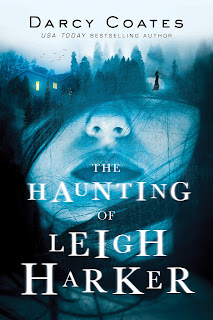Updated folklore/mythology is one of my favorite niche genres. The big thing for me to make these good though is you have to be able to recognize the original story. If the author has deviated so far from the original path that you really are only taking their word for it that they were truly inspired by a well-known folktale or myth then that's not really a retelling and in some cases, it really just feels like a cheap marketing ploy (there are unfortunately several extremely popular YA novels that feel like this). So I was incredibly happy when Dragon Sword and Wind Child was immediately recognizable as the Japanese Creation Myth and that her changes took it from a myth to a fairy tale.
Saya is found wandering a forest near death as a young child, she is then taken in and adopted by an older couple. Over the years she finds her place in her new village but is plagued by nightmares of fire and a shrine priestess who terrifies her. On the night of the Hagai, a festival, Saya discovers that she is the Water Priestess of the People of Darkness a group who revere the Goddess of Death and one viewed with scorn and meets Prince Tsukishiro the demigod son of The God of Light hell-bent on the destruction of the Goddess of Death. Saya has a choice to make she can embrace her lineage and save her people or continue down the path of Light that she started those many years ago when she was found in the forest. Her decision will change the fate of the world.
This was beautifully told. I feel like this could have become unnecessarily complicated and long-winded but Ogiwara keeps the complications to just what needs to be added to keep the tension going. And she does an exceptional job of creating and maintaining just the right amount of tension through Saya's indecisiveness, the pacing in this was really excellent, it never felt rushed or too slow. I found that the simplicity of the story was the best part though. The play of light against darkness, or in this case, immortality vs death and rebirth is something that is a complicated subject but Ogiwara keeps it simple using the impact on nature to explain it. This topic alone could have become a really long drawn-out philosophical debate between the opposing forces but she avoids that which makes this book perfect for its demographic.
In terms of the characters I absolutely hated Saya at the beginning, but through really exceptional character progression she goes from kind of whiny, indecisive, and a little bit of an entitled brat to a strong and courageous young woman at the end. However, I have to say that Chihaya was my favorite character. We don't get a lot of dialogue from him but from what we do we can gradually see the change that he is undergoing from a God of Light to a human with emotions.
The ending of this totally had a Ponyo vibe though. Seriously, if you've watched Ponyo's Mom nicely but firmly tells Ponyo's dad to stop being an ass and she's already made a decision so he might as well accept it and the conversation between The Goddess of Death and the God of Light at the end pretty much goes the same exact way. Outside of the Ponyo vibe though the way this is wrapped up was very well done. Earlier in the book Chihaya is told that either he will have to kill his father (the God of Light) or his father will kill him, what that actually looks like in the end is not what I expected at all but is the perfect fairy tale ending.
Overall I enjoyed this immensely and I'm looking forward to reading the next couple of books in the series.



















